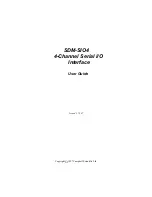
1-877-789-3245 | [email protected] | www.reliance-foundry.com
Crash-Rated Bollard Installation
Embedded
R-1009-12
STEP 8
STEP 3:
Plan the layout and dig a rectangular hole with a
width of 72", length of 48", and depth of 36".
STEP 4:
Set a brace (concrete block or chair) at the bottom
of the site. This will elevate the bollard off the subgrade.
The bollard should be lifted up enough that the top of the
bollard’s gusset is flush with the surface grade. The bollard
height above grade should be 39.5".
STEP 5:
Lower the bollard into the site and onto the brace.
Note: Crash-rated bollards are heavy—to prevent accidents
and injuries, ensure the proper resources are available to
set into place.
Pour the Concrete
STEP 6:
Only use concrete with a minimum 4000 PSI. Mix
the concrete. Check that the proper ratio of water and
concrete mix is used—the concrete should have a similar
texture to moldable clay.
STEP 7:
Fill the site to the top with concrete until it is level
with the surface grade.
Set the Bollard
STEP 8:
Hold a level against the side of the bollard and
ensure that it is plumb.
Note: Once the concrete has cured,
there will be no way to make any adjustments.
STEP 9:
Patch the surface around the bollard to make it
smooth with the existing surface.
Clean the Bollard
STEP 10:
Use a cloth to clean the bollard before the
concrete cures.
STEP 11:
Be sure to allow enough time for concrete to cure
before beginning construction projects on new concrete
surfaces.
Note: Moisture in the environment and cool
temperatures can significantly slow the process.
STEP 12:
Landscaping material or concrete can be applied
around the bollard base to achieve the desired final grade.
Note: Decorative bollard covers can be installed over crash-
rated bollards. Please ensure that the cover is large enough
to accommodate the crash-rated bollard. To install, please
refer to the cover’s installation guide.
STEP 5
(Side View)
(Top View)
STEP 3
STEP 3
48"
72"
72"
36"





















